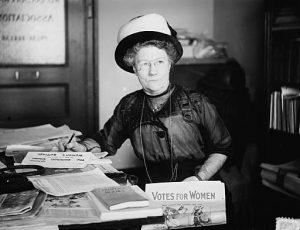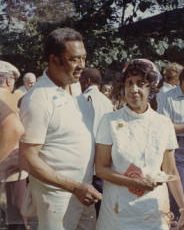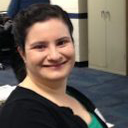
Plan your visit
Women Behaving Badly
March 1, 2018

Well-behaved women seldom make history. – Laurel Thatcher Ulrich
Our collections are full of stories of strong, gutsy ladies bucking tradition and speaking their minds to make their marks on Indiana. As we dive into women’s history month, I’ve dug deep into the archives to highlight just a few of our lesser known Hoosier heroines.
Mary Ritter Beard
If you are looking for someone who included women into the sequel, look no further than Mary Ritter Beard. An Indianapolis native and DePauw University graduate, Beard spend much of her early career fighting for women’s suffrage while organizing the Congressional Union for Women’s Suffrage and National Women’s Party. She and her husband Charles collaborated on a handful of groundbreaking books that integrated social, cultural and economic contexts into American history.
Mary was still appalled at how many women’s stories were missing from the historical record. After all, women have always been “co-makers of civilization side by side with men.” Penning a plethora of books on women’s integral role in society wasn’t enough. Beard knew “no documents, no history.” So she set to work to fix this, helping to grow robust the women’s history collections at Radcliffe College and Smith College. Even after her death in 1958, Beard’s work started the ball rolling for generations of scholars to come.
Want to learn more? Check this out!
Ida Husted Harper
It’s hard to choose the most renegade of Indiana’s suffragettes: Zerelda Wallace, May Wright Sewall, Amana Way, Helen Gougar, Grace Julian Clark and Amelia Keller were all dangerous dames who paved the way for women to vote in Indiana. But let’s talk about a lady that often gets overlooked – Ida Husted Harper.
Harper, born in Franklin, Indiana, began her journalism career writing under an assumed name for the Terre Haute Saturday Evening Mail. When the paper’s editor offered to print her columns under her own name and pay her a salary, her husband balked. Harper persisted, continued to write and eventually divorced him in 1890. She moved to Indianapolis, where she joined the editorial staff of the Indianapolis News and began to fight for women’s suffrage. She became besties with Susan B. Anthony, and became her biographer. Nationwide, Harper’s name was familiar through her columns for the New York Sunday Sun and Harper’s Bazaar. She lived to vote in her first election when women were granted the right in 1920 and published A History of Woman Suffrage in 1921.
Want to learn more? Check this out!
Mattie Coney
Sometimes to see change, you have to take matters into your own hands. That’s exactly what outspoken neighborhood advocate Mattie Coney did in Indianapolis. A beloved veteran teacher known for her stylish headwear and no-nonsense philosophies – “Mattieisms” – Coney founded Citizens Forum in 1964 to better her community.
Citizen’s Forum promoted individual responsibility and self-improvement through neighborhood block clubs. “Slums are made by people,” stated Coney, “not by plaster and bricks.” With Coney and her husband Elmo at the helm, Citizen’s Forum encouraged Indianapolis residents to take pride in their neighborhoods with projects like a “de-RAT-ification” campaign to banish rodents from the city, dogwood tree plantings, and city-wide trash pick-up. Her results were so successful that Chicago, Detroit, Milwaukee, New Orleans, Detroit, New York and Washington D.C. began similar programs. Coney’s work received accolades from presidents Dwight Eisenhower and Gerald Ford, as well as Mayor Bill Hudnut, who gave her a key to the city in 1984.
Want to learn more? Check out this article! Or this collection!
Clara Burnside
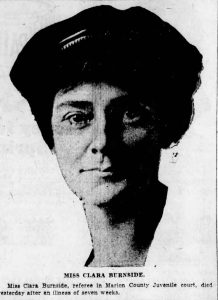
Clara Burnside. Indianapolis Star, May 20, 1928.
The history of police work is a male-dominated story. Indianapolis is no exception. The first police matrons were not hired until 1891. They counseled children and women in the police station. In 1918, the city made a bold choice to expand women’s roles, hiring 14 policewomen (and paid them the same salary as male officers). Clara Burnside, an experienced social worker and probation officer was hired to supervise them. These officers, often in plain clothes and without weapons, were tasked with patrolling public halls, cafes, parks and sniffing out shoplifters. As Burnside described, a policewoman’s job was “to protect, to supervise and readjust the manner of living of girls and women in danger.”
The success of the Indianapolis Police Women’s department is largely credited to Burnside, who was known for her knowledge of the probation system and expert handling of the department. By 1921, there were 23 women on the force, making it the largest department of policewomen in the world, according to one industry magazine. Indianapolis was one of only three departments in the nation to have a female supervisor.
When Mayor Shank took office in 1922, he cut the policewomen program. Burnside returned to juvenile court as a probation officer and later a referee serving as a judge for court cases concerning women and girls. In 1928, her obituary ran on the front page of The Indianapolis Star, where she was called the “most capable woman in juvenile work in the country.”
Want to learn more? Check out this blog post.
Lillian Thomas Fox
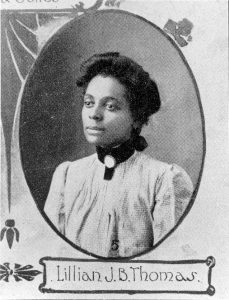
Lillian Thomas Fox
Fox was used to being the only woman in the room. A noted civil leader and champion for public health, she was the only female editor for the Indianapolis Freeman, the leading national black newspaper. She later became the first black columnist for a white newspaper, the Indianapolis News, where her column ran for 15 years. “No human device holds a more exalted place in mankind’s regard than does the pen,” explained Fox to the Afro-American Press Association in 1900, adding that pen “has been most efficiently wielded by women.”
Off the page, Fox was a powerful advocate for the Black community in Indianapolis. She co-founded numerous women’s clubs in Indianapolis, included the Indianapolis Women’s Improvement Club and the Indiana State Federation of Color Women’s Clubs, and the Indianapolis Anti-Lynching League. 97 years after her death, she was posthumously inducted into Indiana’s Journalism Hall of Fame.
Interested in finding out more? Check this out!
Learn more about Indiana’s renegade ladies at Women Behaving Badly on Thursday, March 22. You’ll meet four revolutionary ladies from Indiana’s past while enjoying themed snacks and local libations. Find out more and grab your tickets today!




